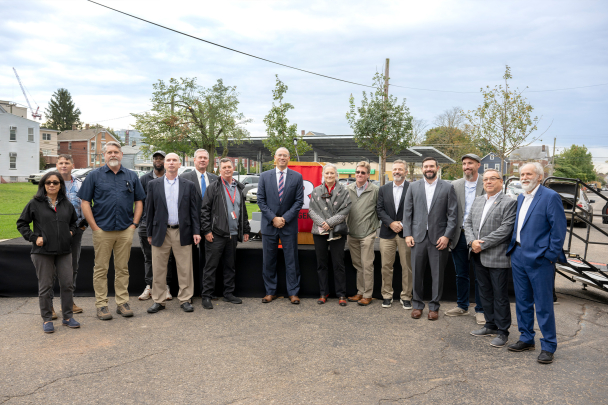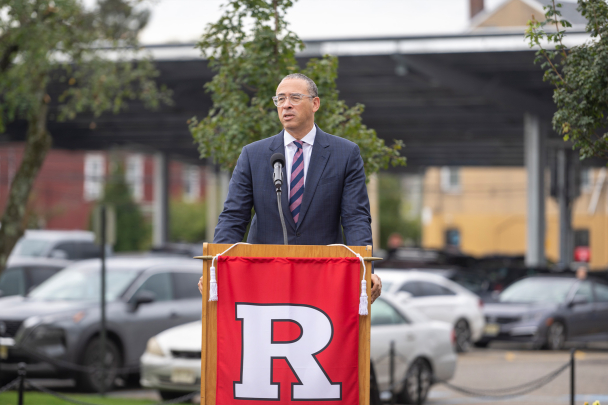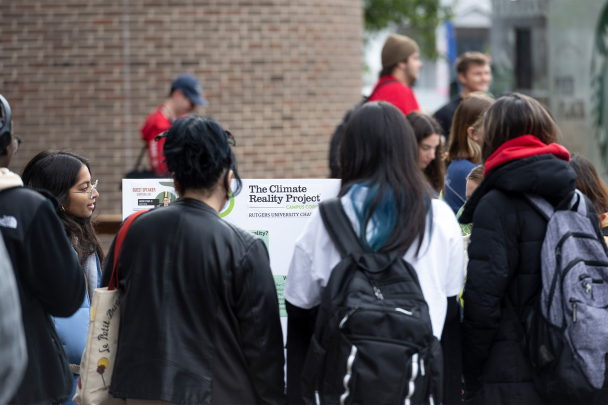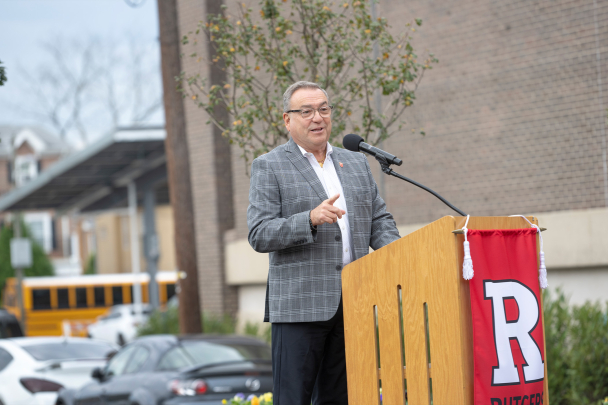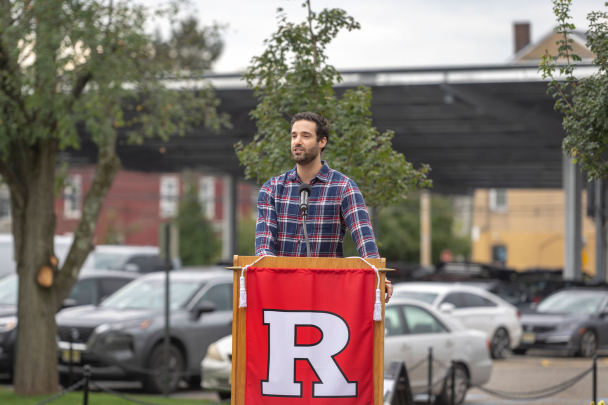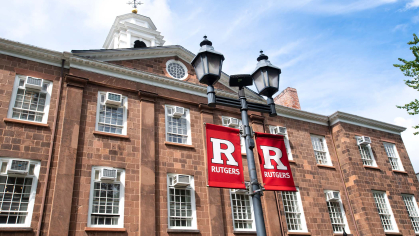Rutgers Celebrates Solar Energy Expansion
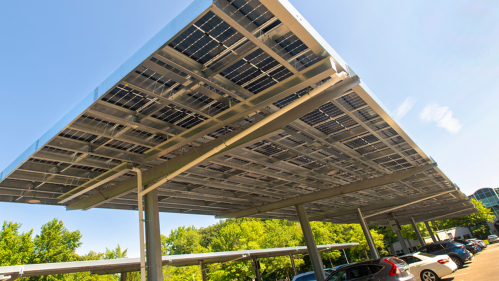
A solar panel project has transformed the landscape across Rutgers, highlighting the university’s role as a leader in the fight against climate change.
To commemorate completion of the first major sustainability initiative since President Jonathan Holloway announced Rutgers’ commitment to a Climate Action Plan, the university hosted a solar festival Tuesday afternoon behind the College Avenue Student Center. As Taylor Swift and Olivia Rodrigo songs played and the RU Hungry food truck fired up its grill, faculty, staff and students gathered at Rutgers-New Brunswick against the backdrop of several new solar panel canopies to hear more about how the project came together and the ways it benefits the university.
Solar generation from the new canopies installed at 16 locations across the university is expected to come online by December. The project advances Rutgers’ goal of reducing emissions by 45 percent by 2030 and becoming carbon neutral by 2040, Holloway said during the event organized by the Office of Climate Action. Equally important, he said, those goals will be achieved while simultaneously supporting just and equitable adaptation and cultivating a culture of sustainability.
“This incredible work is part of a broader universitywide effort to transform our campus into a living lab for climate action,” Holloway said. “While harnessing the power of the sun is one great part of these goals, we are also recognizing our roles as a teaching and research institution and good community partner as well.”
Antonio Calcado, executive vice president and chief operating officer, reflected on Rutgers’ first record-setting solar project over the Livingston parking lot, which covers 33 acres, generates 9 megawatts of energy, and in 2008 was the largest campus-based solar energy farm in the nation.
“Fast forward to today, and we are still leading the way on campus solar, using an innovative financial model to more than double our solar energy capacity at no cost to the university,” said Calcado, noting that Gable Associates negotiated a power purchase agreement for DSD Renewables to design, build, own, operate and maintain the solar canopies. “Collectively, the new panels will generate 14.5 megawatts of power and are expected to save the university about $1 million annually. That allows us to do other projects in the sustainability space.”
Rutgers Climate Action Plan was born out of the Climate Task Force Student Advisory Panel, which MD/PhD student Jake Lessing helped form in the spring of 2019. Lessing, now in his sixth-year with Robert Wood Johnson Medical School and the Joint Program in Toxicology with the School of Environmental and Biological Sciences, recalled the uncertainty that came after the fall 2019 student march for climate action, followed by the pandemic and the arrival of a new Rutgers president.
“We students held our breath. We wondered: would the new guy be a climate champion? And, by now, you all know we need not have worried. The next year, President Holloway endorsed our Climate Action Plan and goal of carbon neutrality by 2040,” said Lessing. “The installation of these solar panels represents a tangible example of what can be achieved when students, faculty, staff and administration unite in a common goal. It showcases the power of collective action and underscores the vital role that every member of the Rutgers community plays in driving change.”
